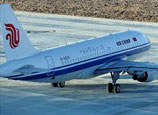
Local authorities should issue concrete measures in implementing the policy, including traffic control in toll collection areas, signs to guide traffic and the dissemination of traffic information, he said.
To make vehicle passes convenient, smooth and efficient, each province or city can decide on their own methods of toll collection management according to the respective scales of road networks and traffic conditions, he said.
During the early days of the October holiday, toll collections on freeways chose to stop each car to give each driver a toll card just like on ordinary days, which slowed down traffic and caused many congestions.
Later, the Ministry of Transport ordered freeway toll collections to grant direct passes for qualified passenger vehicles starting from October 4 to speed up the process.
He said local governments should also improve information services to guide drivers' choices of traveling time and routes, and intensify supervision on the situations of road networks to take effective measures against possible emergencies.
As the Spring Festival falls in winter, the country's transportation system will also face tough challenges from cold weather, especially ice and snow on roads.
He urged local authorities to make joints efforts with the country's meteorological administration to fully understand forecasts on weather conditions and provide drivers with necessary weather information.
They should also make full preparations for cold weather, including obtaining equipment for clearing ice and snow from roads, ensuring the sound management of emergency response teams and constructing emergency passes, the spokesman said.
The upcoming Spring Festival falls on February 10, 2013 and will be marked by a seven-day national holiday.















 10th China Int'l Auto Exhibition to be held in Guangzhou
10th China Int'l Auto Exhibition to be held in Guangzhou


![]()
